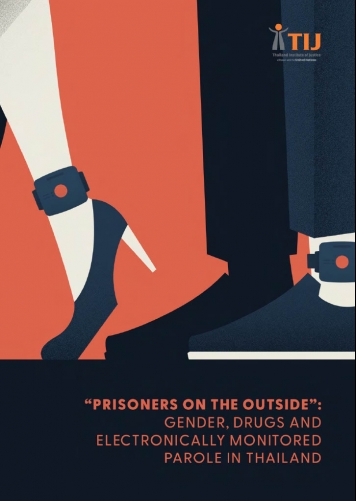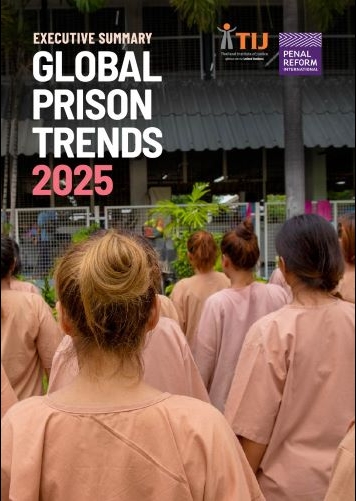White Paper: Catalysing Innovation Ecosystem for People-Centered Justice in Southeast Asia
This white paper presents insights and a proposed approach towards catalysing an innovation ecosystem for people-centred justice in Southeast Asia. It highlights four issues relevant to this topic, namely, (1) the central concept of people-centred justice itself, (2) what the elements and functionalities of, and challenges and opportunities for, an innovation ecosystem for people-centred justice in Southeast Asia are, (3) how a regional innovation ecosystem can be developed for people-centred justice, and (4) how justice innovation actors can be mobilised in taking collective responsibility to catalyse the innovation ecosystem collaboratively.
รายละเอียดT4SEA 2024 Recap: Highlights and Key Takeaways from the Class of 2024
The Training on Crime Prevention and Criminal Justice for Southeast Asia or the “T4SEA” is the first regional training for criminal justice professionals on the United Nations standards and norms in crime prevention and criminal justice in Southeast Asia. T4SEA is based on the recognition that criminal justice is foundational to just, peaceful, and sustainable societies. The program targets aspiring criminal justice practitioners in the region because we, the organizers, believe that a better understanding of key global developments, local challenges, and regional best practices can strengthen the collaboration of criminal justice institutions in combating crimes at all levels. This report summarises highlights and key takeaways from the class of 2024. We hopes the report would sparked thought-provoking and energetic discussions.
รายละเอียดPNI Newsletter: Issue 6, Autumn 2024
The United Nations Crime Prevention and Criminal Justice Programme Network (PNI) consists of the United Nations Office on Drugs and Crime (UNODC) and 18 institutes and entities around the world. The mission of the PNI is to assist the international community in strengthening cooperation in crime prevention and criminal justice on the global, regional and sub-regional levels, within the framework of the United Nations Crime Programme. In January 2022, the members of the PNI decided to publish a “PNI Newsletter” as a way of sharing information on the contributions of the Network, in a way that could benefit a wide range of international and regional stakeholders as well as the general public. The Newsletter also serves to promote cooperation within the Network as well as with UN entities and with national and international stakeholders, through the dissemination of information and the sharing of knowledge. The Newsletter is published twice a year, in the spring and the autumn. This 6th issue highlights the work of members of the PNI in advancing global efforts in crime prevention and criminal justice, focusing on the implementation of Pillar IV of the Kyoto Declaration—promoting international cooperation and technical assistance. In the special section, we are honoured to feature an exclusive interview with H.E. Judge Tomoko Akane, President of the International Criminal Court, who shares invaluable insights on complementarity, mutual legal assistance, and the critical role of collaboration among member states and all other actors. This edition also includes articles on preparations for the Fifteenth UN Crime Congress, strategies for enhancing mutual legal assistance, and the vital role of asset recovery in preventing crime. Additionally, we present inspiring interviews with two PNI leaders from the ICPC and NAUSS, as well as key figures working on the ground to drive innovation in the field in our new “Meet the staff” section.
รายละเอียดPNI Newsletter: Issue 5, Spring 2024
This issue of the PNI Newsletter shines a spotlight on our contributions to the UN Crime Programme, with comprehensive updates on the initiatives implemented in support of the Kyoto Declaration throughout 2023 and early 2024. We proudly introduce the newly appointed leaders across our institutes in the “Leadership Updates” section, each an expert in international legal cooperation and related disciplines. This edition also marks the 20th anniversary of the Korean Institute of Criminology and Justice (KICJ) becoming a member of the PNI, and features reflections on past achievements and future aspirations within the PNI family. Additionally, an insightful article from the Australian Institute of Criminology (AIC) illuminates ongoing efforts to address intimate partner violence. To offer a deeper understanding of individual institutes, this issue includes interviews with the Chair of the Board of Directors at the International Centre for Criminal Law Reform and Criminal Justice Policy (ICCLR), and the Executive Director of the Raoul Wallenberg Institute of Human Rights and Humanitarian Law (RWI).
รายละเอียดGlobal Prison Trends 2024
This year’s report, which is a cooperation between the Thailand Institute of Justice (TIJ) and Penal Reform International (PRI), features an in-depth look at prison labour in its ‘In Focus’ section, addressing pressing issues such as forced labour, work conditions, and the challenges faced by women in prison. The Global Prison Trends also provides a crucial overview of correctional systems' current challenges, including overcrowding, healthcare, corruption, and staffing shortages.
รายละเอียด











